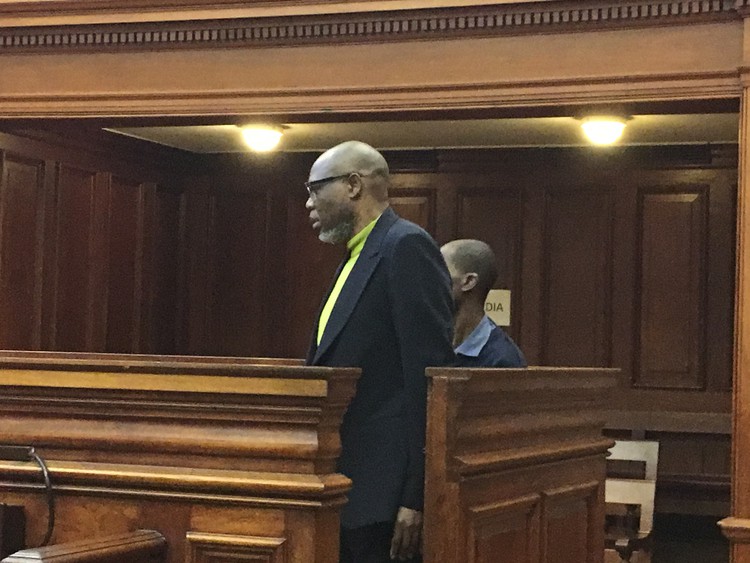Court “mustn’t feel sorry” for killer and artist Zwelethu Mthethwa
“In many cases the perpetrators are never found and the [victim] remains unidentified for some time”
The director of Sex Workers Education and Advocacy Taskforce (SWEAT) Sally Shackleton has described the proposed non-prison sentence for Zwelethu Mthethwa as an “appalling suggestion.”
Mthethwa was convicted on 16 March this year of kicking sex worker Nokuphila Kumalo to death in Woodstock in 2013. He was denied bail for the duration of his sentencing proceedings.
Shackleton was testifying during Mthethwa’s sentencing proceedings in the Western Cape High Court on Monday. Kumalo was known to some of the peer educators at SWEAT, Shackleton said.
“A US study showed that sex workers are 18 times more likely to be murdered [than non-sex workers],” Shackleton told the court today. She said this statistic would most likely be true in South Africa as well.
Shackleton said that sex workers wanting to report crimes were often turned away at police stations and that police were often the perpetrators of these crimes. “In many cases the perpetrators are never found and the [victim] remains unidentified for some time,” she said. Shackleton said that Mthethwa’s case was “very very important” to them and that it had become “symbolic of the justice that doesn’t come very often for sex workers”.
She said that she was “shocked at the suggestion” by the defence of a non-custodial (i.e. no prison time) sentence for Mthethwa. If granted, Shackleton said she believes it would “send a strong message that supports the stigma” and the silencing of sex workers. “What would be the point of reporting violence when perpetrators are treated so casually?” she asked.
Mthethwa’s lawyer, William Booth argued that whatever sentence was given to Mthethwa should not “destroy” him. Booth said that the case had affected Mthethwa emotionally and financially. He argued that there was “substantial and compelling circumstances” to consider for his sentencing.
He argued that Mthethwa should be able to “come back and reintegrate himself into society” after serving his sentence. He said that Mthethwa was a world renowned artist, whose artwork “does display a respect for women”.
Booth said that Mthethwa supported family members financially and emotionally as well as various university students and several organisations. He said that Mthethewa’s conviction of dolus eventualis, must be regarded as a “lower form of intent.” He said Mthethwa was “most suitable” for correctional supervision.
Prosecutor Christenus van der Vijver argued that Mthethwa should be given the minimum sentence of 15 years in prison and that the court shouldn’t feel sorry for an accused.
“There is a difference between feeling sorry and the well-established principle of mercy,” he said. Van der Vijver said that the reason why mercy needed to be considered in every sentence was to prevent the court from stooping to the level of the criminal who didn’t have any mercy.
Van der Vijver said that the “brutal attack on a person who couldn’t defend herself” could only be described as “cowardly”. He said the accused knew Kumalo and that there was no evidence on record to justify his “vicious” attack on her. “The personal circumstances of the accused are not so special that it needs to be given more weight than that of the interests of society,” he said.
He said that the fact that Kumalo was a sex worker didn’t make the crime any less serious and that sex workers have “just as many rights as any other person who walks the street of South Africa”.
Deputy Judge President Patricia Goliath said she needed time to consider the arguments. Mthethwa is to be sentenced on 7 June.
© 2017 GroundUp. 
This article is licensed under a Creative Commons Attribution-NoDerivatives 4.0 International License.
You may republish this article, so long as you credit the authors and GroundUp, and do not change the text. Please include a link back to the original article.



